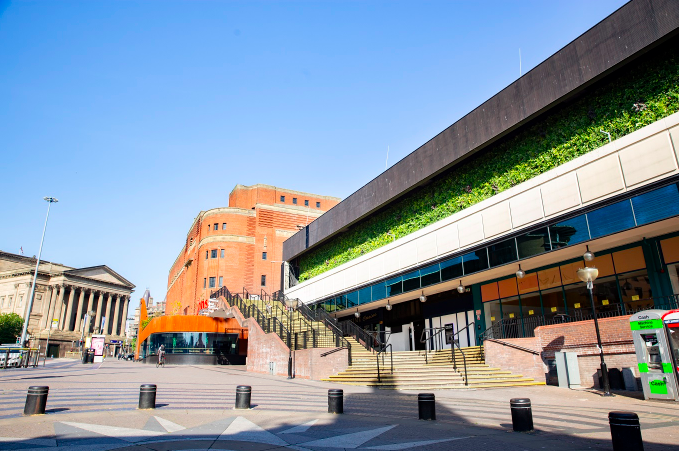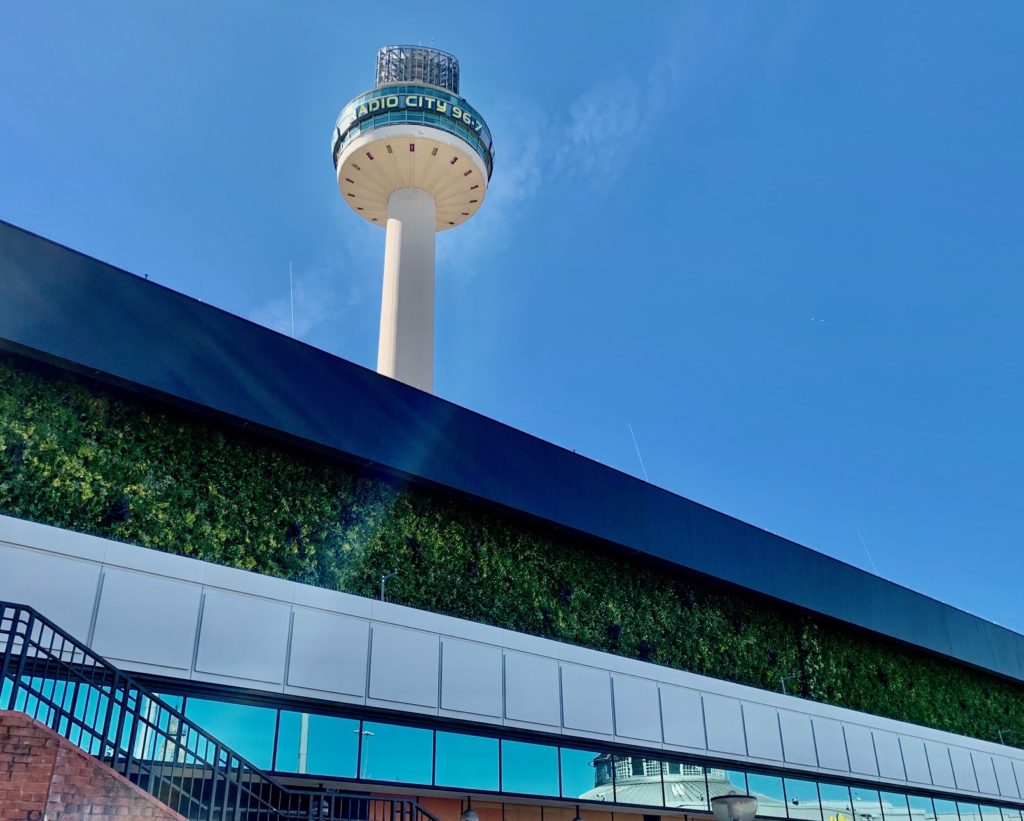Liverpool has just become cleaner and greener thanks to the installation of a ‘living green wall’ on the exterior of St Johns Shopping Centre.
Spanning 65 metres in length, the living green wall is one of the longest in the UK and has been installed as part of a project which seeks to increase green space in urban areas, improve air quality and support health and wellbeing.
The project is being led by The Mersey Forest and is funded through the EU Horizon 2020 project Urban GreenUP. The installation, filled with over 14,000 evergreen plants, encourages bees and other pollinators, whilst making the city centre greener and more environmentally sustainable.
The innovative installation is visible from pedestrianised areas around it and from Queens Square Bus Station. St Johns is one of a handful of shopping centres in the UK to bring such benefits to the local community through their green space initiative. The living green wall is the latest in a series of green projects that St Johns has undertaken. Over the Summer the centre is planning to install beehives on its roof to create ‘bee-lanes’ which will provide a shelter for bees and other pollinators in the city centre.
The Urban GreenUP project has been awarded nearly £3.5m of European funding to tackle environmental issues through nature-based solutions, with St Johns being one of many projects in the city centre.
Commenting on the installation of the living wall, Neil Ashcroft, Centre Manager at St Johns, said:
“We are thrilled to launch our green wall today. Through months of hard work, and with the challenge of safely undertaking work during the COVID-19 pandemic, we have delivered an important initiative that not only enhances the shopper experience, but also benefits the local community. Green spaces in many city centres are few and far between and we understand as a community shopping centre our role is to help improve the built environment and to bring wider benefits to the community by improving air quality, biodiversity and health and wellbeing across the city.”
Clare Olver from the Mersey Forest Trust welcomed the addition to the city:
“The living green wall will be good for attracting pollinators – so increasing biodiversity, as well as adapting to climate change and for business. There are 17 species of plants in the living green wall which Biotecture has designed in co-ordination with the Bumblebee Conservation Trust. We are looking forward to seeing how this, together with the new roof garden at Royal Court Theatre, can provide benefit both for wildlife and people right in the heart of our city.”
Councillor Laura Robertson-Collins, Liverpool City Council’s Cabinet Member for Environment and Sustainability, said:
“I’m delighted to see the progress with this installation which is one element in a series of different interventions and projects across Liverpool to help discover how cities can best ‘green’ themselves.”
“As well as this living green wall in the city centre, we are working to reveal natural water features in Otterspool Park to improve bio-diversity there, placing living floating islands on Sefton Park lake to provide natural cleansing of the water, and planting trees with sustainable drainage on the Strand, amongst many other experimental projects.”
Bill Addy, chief executive of Liverpool BID Company, said:
“The living green wall at St Johns Shopping Centre is great news for the city. This installation makes our city centre greener and more environmentally sustainable. It is important for us to improve the experience for everyone using our city centre and we’ll look forward to welcoming all to see it in the weeks ahead.”
The five-year Urban GreenUP project is working with local stakeholders including Liverpool City Council, Mersey Forest with the support of Community Forest Trust, Liverpool BID Company, and the University of Liverpool, as well as organisations in Valladolid (Spain) and Izmir (Turkey) and five other cities across the world.



